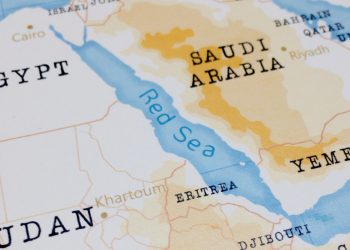Recently, the countries of Egypt and Comoros have taken significant steps towards improving conditions for seafarers by ratifying the Maritime Labour Convention, 2006 (MLC, 2006).
On June 6, 2024, the Arab Republic of Egypt deposited its instrument of ratification during a ceremony at the International Labour Office’s Palais des Nations, marking a crucial move towards universal application of the Convention. Egypt’s Labour Minister Hassan Shehata emphasized the country’s commitment to international labour standards and highlighted Egypt’s strategic role in maritime transport through the Suez Canal. The Convention will come into force for Egypt on June 6, 2025.
Egypt is a key maritime actor in the world. I am sure that by implementing the MLC, 2006 it will make a substantial contribution to the protection of seafarers’ rights. The Office stands ready to accompany Egypt on this path
… said ILO Director-General, Gilbert Houngbo
Similarly, on February 18, 2024, the Union of the Comoros ratified the MLC, 2006, underscoring its dedication to ensuring decent working and living conditions for seafarers. This ratification aligns Comoros with global standards aimed at protecting seafarers’ rights and ensuring fair practices among shipowners. The Convention will take effect for Comoros on February 18, 2025.
Benefits of the MLC for seafarers
According to ILO, the MLC has the following benefits regarding seafarers:
- A comprehensive set of basic maritime labour principles and rights as well as ILO fundamental rights
- Convention spells out in one place and clear language seafarers’ basic employment rights
- Seafarers better informed of their rights and of remedies available
- Improved enforcement of minimum working and living conditions
- Right to make complaints both on board and ashore
- Clear identification of who is the shipowner with overall responsibility, for the purposes of this Convention
Why is the MLC important?
The MLC, 2006 is recognized as a comprehensive instrument, often referred to as “the seafarers’ bill of rights,” and is a cornerstone of international regulations alongside key conventions of the International Maritime Organization. These recent ratifications demonstrate a growing global consensus on the importance of safeguarding seafarers’ welfare and ensuring equitable standards across maritime industries.
Seafarers’ Identity Documents
The amended version of the Seafarers’ Identity Documents Convention (Revised), 2003 (No. 185) entered into force on 8 June 2017, incorporating the latest standards adopted by the International Civil Aviation Organisation (ICAO). The issuance of the new Seafarers’ Identity Documents (SID), with technology similar to the one currently used in electronic passports, contributes to facilitating access to shore leave, transfer and transit for seafarers while enhancing security in ports and borders through the use of a secure and internationally recognised document.
The Convention makes a vital contribution to the security of maritime transport in order to combat terrorist threats, and particularly to respond to the needs of seafarers in transit or transfer to join a ship or to be repatriated. It also facilitates access to shore facilities and shore leave, which are essential for the health and general welfare of seafarers, who often remain on board their ship for several months at a time.
Furthermore, joint IMO/ILO Ad Hoc Working Groups have been established to address various issues which hold great importance to seafarers. These include the:
- Joint IMO/ILO Ad Hoc Expert Working Group on Liability and Compensation regarding Claims for Death, Personal Injury and Abandonment of Seafarers;
- Joint IMO/ILO Ad Hoc Expert Working Group on the Fair Treatment of Seafarers in the Event of a Maritime Accident; and the
- Joint ILO/IMO Working Group on Medical Examinations of Seafarers and Ships’ Medicine Chests.



























































